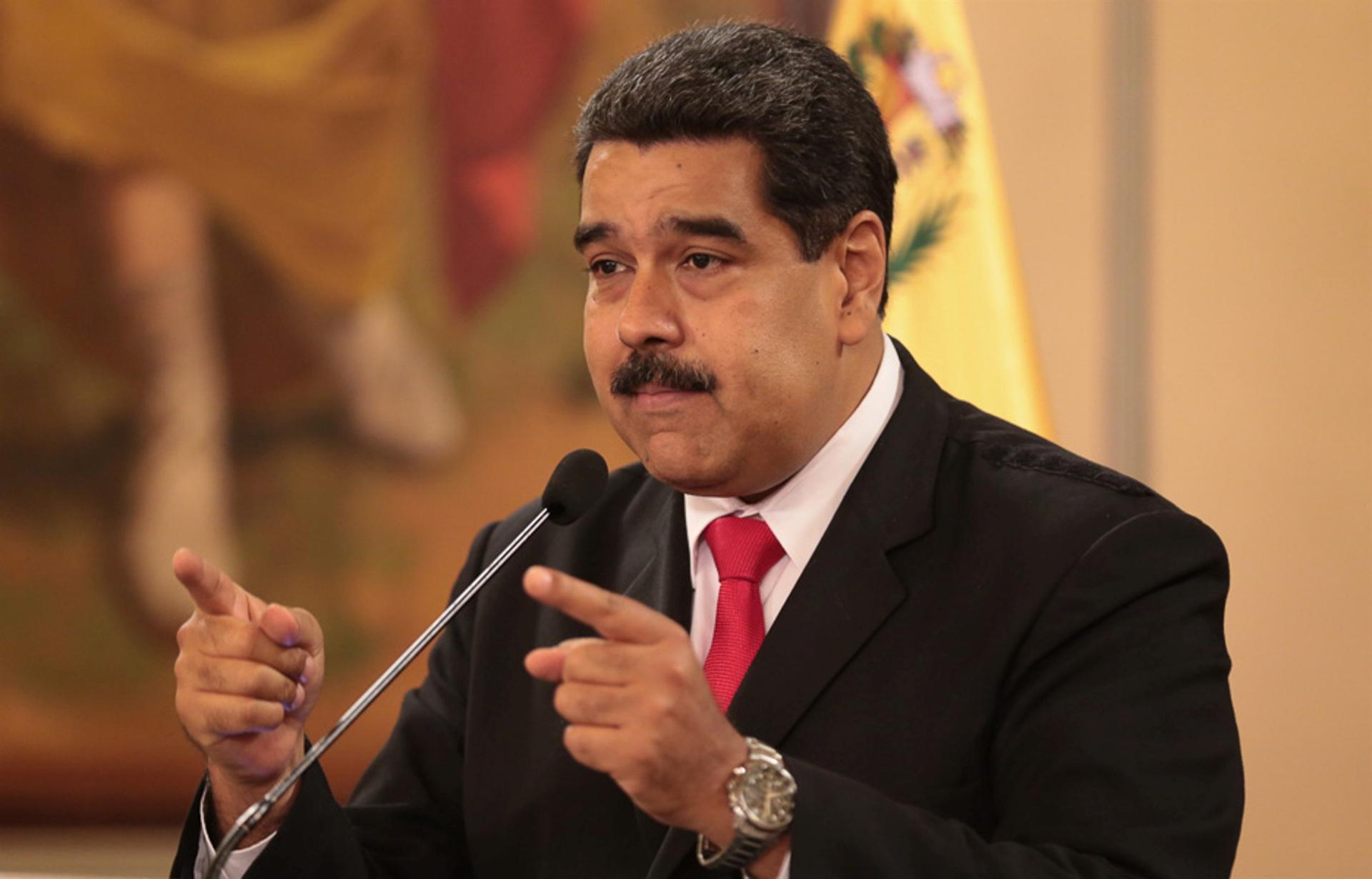
Venezuelan President Nicolas Maduro said Aug. 4 he escaped an “assassination” attempt using an explosive-laden drone, after a live broadcast showed him looking confused when a bang went off during a Caracas military parade and dozens of soldiers scuttling for safety.
His government said seven soldiers were wounded in the incident, blamed on Colombia by Maduro and later claimed by a mysterious rebel group.
“It was an attack to kill me, they tried to assassinate me today,” Maduro, who was unharmed, said in a later state broadcast, speaking of a “flying object [that] exploded in front of me.”
Venezuelan state television images showed Maduro looking up disconcertedly in the middle of a speech having heard a bang, before members of the country’s National Guard lined up in the parade suddenly scattered.
Communication Minister Jorge Rodriguez said there was “an explosive charge... detonated close to the presidential podium” and in several other spots along the parade held in central Caracas.
Attorney General Tarek William Saab told CNN he saw a drone filming the event explode.
No drones could be seen in the television broadcast, which showed bodyguards jumping in front of Maduro to protect him with flexible ballistic shields. The broadcast was quickly cut.
The government pointed the blame at “the ultra-right wing” -- its term for the opposition.
But Maduro himself said: “I have no doubt that the name [Colombian President] Juan Manuel Santos is behind this attack.”
He added investigations suggested the incident’s financiers “live in the United States, in the state of Florida. I hope that President Donald Trump is ready to fight these terrorist groups.”
The Colombian foreign ministry denied involvement, saying the allegations were “absurd” and “lacked any foundations.”
A senior U.S. State Department official said the White House was monitoring the situation closely.
Meanwhile, late Aug. 4, a civilian and military rebel group calling itself the “National Movement of Soldiers in Shirts” claimed responsibility for the explosion.
“It is contrary to military honor to keep in government those who not only have forgotten the Constitution, but who have also made public office an obscene way to get rich,” the group said in a statement passed to U.S.-based opposition journalist Patricia Poleo, who read it on her YouTube channel.
“If the purpose of a government is to achieve the greatest amount of happiness possible, we cannot tolerate that the population is suffering from hunger, that the sick do not have medicine, that the currency has no value, or that the education system neither educates or teaches, only indoctrinating communism,” added the statement.
The parade Maduro attended marked the one-year anniversary of the Constitutional Assembly, a legislative body packed with loyalists that arrogated powers from the opposition-ruled National Assembly.
Maduro has remained in power over oil-rich Venezuela despite a collapsing economy and a long-running political crisis that has seen his country isolated internationally.
Hundreds of thousands of Venezuelans have fled due to food and medicine shortages and hyperinflation that could reach one million percent this year, according to the International Monetary Fund.
Maduro, a 55-year-old Socialist leader who took over from his late mentor Hugo Chavez in 2013, has effectively sidelined the fractured opposition through control of the courts and the electoral body -- and undinting support from the military, which holds key posts in his government.
After the explosion, he ordered the military to be on “maximum alert,” and said he is “more determined than ever to follow the path of the revolution.”
He also warned the opposition that investigations will get the bottom of the alleged attack, “whoever falls” in the process.
His allies Cuba and Bolivia condemned the incident, as Cuban President Miguel Diaz-Canel and his predecessor Raul Castro expressed solidarity.
Maduro often accuses the opposition and the United States of working together to foment a “coup” to topple him.
A year ago, four months of protests against his authority that were put down by robust action from the army, the National Guard and police, left 125 people dead.
One of the key reasons for the protests was the creation of the Constitutional Assembly, which aimed to short-circuit the opposition-dominated National Assembly.
This year, Maduro brought forward to May presidential elections that -- after they were boycotted by the opposition and key opposition figures were declared ineligible -- handed him a new six-year term.